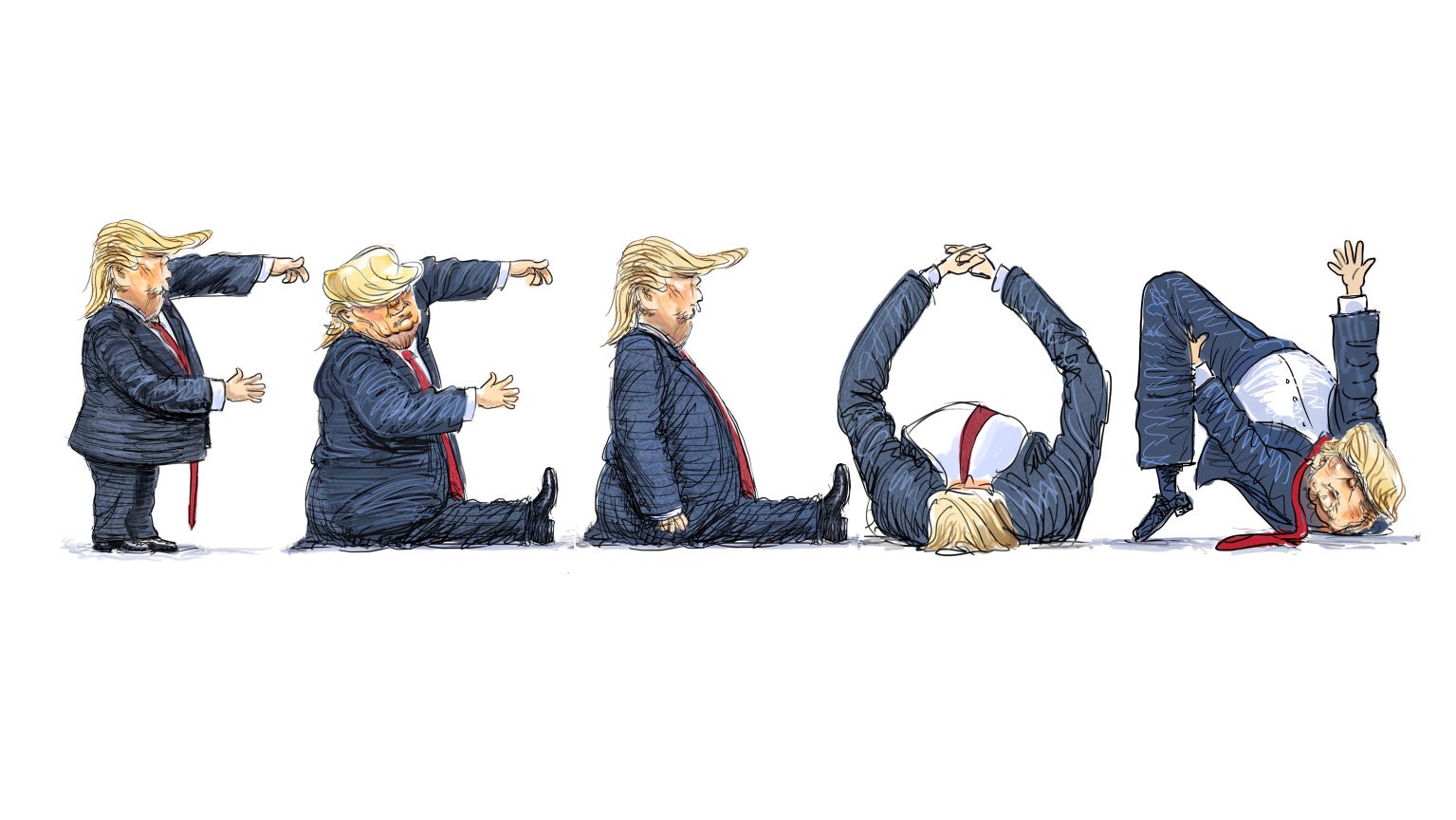Europe And Trump: Unraveling The Tensions In Transatlantic Trade

Table of Contents
Trump's Protectionist Policies and Their Impact on Europe
At the heart of the transatlantic trade friction lay Trump's "America First" policy, a protectionist approach prioritizing domestic industries over international collaboration. This policy manifested in several concrete actions, significantly impacting Europe. The imposition of tariffs on steel and aluminum imports, for example, sparked immediate retaliation from the EU, escalating the trade war.
- Increased Prices: Tariffs directly increased the cost of imported goods for European consumers, impacting everything from cars to consumer electronics.
- Reduced Market Access: American tariffs restricted European businesses' access to the lucrative US market, hindering their growth and competitiveness.
- Retaliatory Tariffs: The EU responded with its own tariffs on American goods, creating a cycle of escalating trade barriers and harming businesses on both sides of the Atlantic.
This protectionist stance particularly impacted specific European sectors. The automotive industry, a key player in the transatlantic trade relationship, faced significant challenges due to threatened tariffs and trade disputes. Similarly, European agricultural producers faced reduced market access for their products in the US.
The Transatlantic Trade and Investment Partnership (TTIP) and its Demise
The Transatlantic Trade and Investment Partnership (TTIP), a proposed comprehensive trade agreement between the EU and the US, was a victim of the Trump administration's protectionist agenda. This ambitious agreement aimed to reduce trade barriers and foster economic integration between the two economic powerhouses. However, under Trump, the TTIP negotiations stalled and ultimately collapsed.
European opposition to certain aspects of the TTIP played a crucial role in its demise. Concerns focused primarily on:
- Investor-State Dispute Settlement (ISDS): European critics worried that ISDS mechanisms would allow corporations to sue governments, undermining national sovereignty and regulatory power.
- Regulatory Harmonization: Concerns arose regarding potential compromises on European standards and regulations in favor of less stringent American rules.
The failure of the TTIP dealt a blow to the prospects of deeper transatlantic economic integration and cast a shadow over future large-scale trade negotiations.
The Rise of Trade Disputes and Bilateral Negotiations
The absence of the TTIP framework led to a surge in bilateral trade disputes between the US and the EU. The long-standing Airbus-Boeing dispute, involving allegations of illegal subsidies, exemplifies the escalating tensions. The World Trade Organization (WTO), while intended as a mediator, faced challenges in resolving these complex disputes effectively.
- Airbus-Boeing Dispute: This protracted dispute involved retaliatory tariffs imposed by both sides, highlighting the limitations of the WTO’s dispute settlement mechanism.
- Challenges of Bilateralism: The shift towards bilateral negotiations, while offering greater flexibility, often lacks the broader impact and collaborative spirit of multilateral agreements.
These trade disputes underscored the need for robust global trade governance and mechanisms to prevent such conflicts from escalating into full-blown trade wars.
The Future of Transatlantic Trade Relations Post-Trump
The Biden administration's approach to transatlantic trade marks a significant departure from its predecessor. While challenges remain, there is a renewed emphasis on multilateralism and a desire to repair the damage caused by the previous administration's protectionist policies.
- Potential for a New Trade Agreement: The possibility of a new, more nuanced trade agreement tailored to address contemporary concerns is being explored.
- Challenges to Overcome: Deep-seated mistrust and the legacy of protectionist policies still need to be addressed to build a foundation for lasting cooperation.
The long-term implications for the transatlantic relationship depend heavily on the success of these efforts to rebuild trust and cooperation.
Conclusion: Rebuilding Trust in Transatlantic Trade
The tensions between Europe and the Trump administration regarding transatlantic trade were profound, leaving lasting scars on the relationship. The imposition of protectionist measures, the failure of the TTIP, and the escalation of trade disputes all contributed to this strained environment. However, the transatlantic trade relationship remains vital for both the EU and the US. Rebuilding trust requires a commitment to multilateralism, effective dispute resolution mechanisms, and a willingness to address shared concerns openly and collaboratively. To understand the full ramifications of "Europe and Trump: Transatlantic Trade Tensions" and engage in informed discussions about the future of this crucial relationship, further research is essential. Explore resources from the WTO, the European Commission, and reputable think tanks to gain a deeper understanding of this complex topic.

Featured Posts
-
 Atletico Madrid In 3 Maclik Hasreti Sona Erdi Zaferin Hikayesi
May 26, 2025
Atletico Madrid In 3 Maclik Hasreti Sona Erdi Zaferin Hikayesi
May 26, 2025 -
 Alex Ealas Paris Grand Slam Expectations And Preparations
May 26, 2025
Alex Ealas Paris Grand Slam Expectations And Preparations
May 26, 2025 -
 Explorer La Carriere De Melanie Thierry Films Prix Et Recompenses
May 26, 2025
Explorer La Carriere De Melanie Thierry Films Prix Et Recompenses
May 26, 2025 -
 Hoka Cielo X1 2 0 Review Lightweight Rocker For Speedier Runs
May 26, 2025
Hoka Cielo X1 2 0 Review Lightweight Rocker For Speedier Runs
May 26, 2025 -
 Lewis Hamilton News Mercedes Urgent Investigation
May 26, 2025
Lewis Hamilton News Mercedes Urgent Investigation
May 26, 2025
